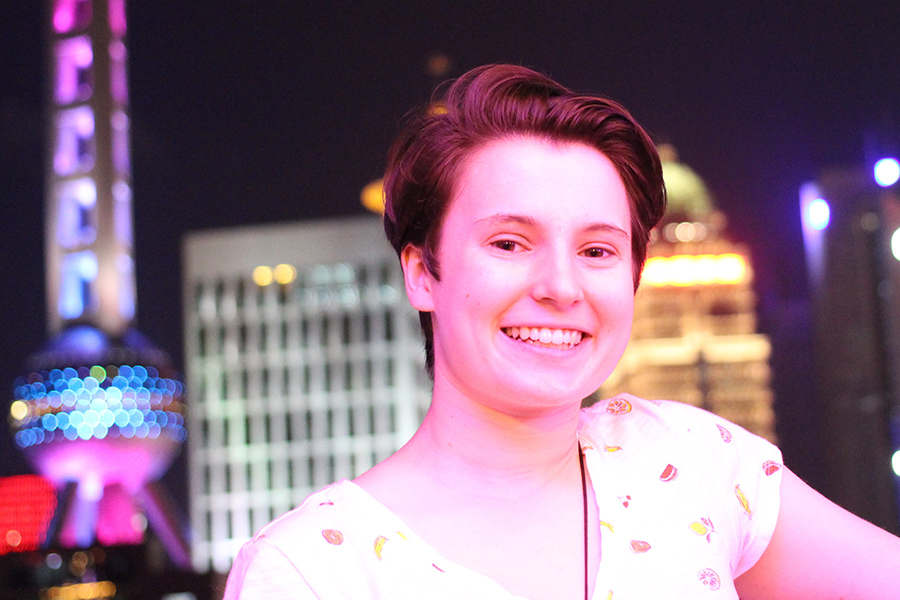Amy Kelley recently attended the Human Rights Campaign National Dinner in Washington, D.C., where she was in the presence of leaders such as Hillary Clinton and Billie Jean King.
“I was on the verge of tears the whole time. It was really empowering. These are people out here doing amazing things, and hopefully, someday I can be at almost that level,” the 20-year-old University of Pittsburgh junior said with a laugh.
AT&T and HRC selected Kelley, a lesbian, and two other winners from throughout the country for the AT&T Live Proud on Campus scholarship contest. She received a $10,000 scholarship, $2,500 in funding to execute an LGBT-inclusive campus project and a semester-long mentorship experience with HRC. This scholarship is part of AT&T’s efforts to uplift the LGBT community, which also included a $25,000 donation to the HRC.
In her video submission, Kelley said she hopes to assemble a team of LGBT students and allies to team up with LGBT staff. She wants to organize a system in which staff members mentor the students and the students, in turn, become peer educators. She then hopes to spread the knowledge schoolwide to make the environment more LGBT-inclusive. As a resident advisor on her campus, Kelley participates in various trainings, such as sexual-assault prevention and alcohol-awareness training. She hopes to conduct similar trainings related to LGBT issues.
Kelley is aiming to begin her mentorship program with HRC next semester.
“[I’m looking forward to] getting the opportunity to network with them and understand the full scope of what they do,” Kelley said. “I researched a little bit and I heard [at the National Dinner] what the Human Rights Campaign does but they have such a broad range of programs [and] they’re always doing more. I hope to be on the ground level to make a difference in a campus setting.”
Kelley said she hesitated to apply for the scholarship at first, thinking her chances were slim, but her mindset changed after she saw a protest group on campus bearing homophobic and misogynistic signs. One sign she recalled said women should “go back to the kitchen.”

“There was a huge counterprotest by students and that was a really powerful thing for me,” Kelley said. “This was an inclusive community and the students here are willing to stand up. I thought I should really do something.”
That night, she came up with the idea and asked a friend to film her. She submitted the video that same night.
In her submission video, Kelley noted how her mother always told her to give others the “benefit of the doubt.”
“She has always been super-accepting and almost too open-minded,” Kelley said. “She would always be like, ‘People don’t really hate other people. They just don’t understand.’ That shifted my personal views. I have grown to agree with her. I see it the same way in that people who aren’t accepting and go out there with these signs, there’s just some misunderstanding. They have this hate in them but if they are educated and if they hear people’s stories, it’ll change their minds and help them realize that what they’re doing is incorrect.”
Kelley said this has shaped the way she interacts with others, adding that she prefers to “open up a dialogue.”
“If someone says something I disagree with, I wouldn’t yell at them saying, ‘What are you doing? That’s so incorrect.’ I try to offer my perspective, explain and teach rather than chastise them for their views. I see myself being a teacher to share and educate.”
Kelley, who is studying applied developmental psychology, said she enjoys teaching but noted that her career path could lead anywhere.
“I’m not really sure what I want to do but I definitely want to make LGBTQIA advocacy a part of whatever I do — whether that be in the classroom or working with college students. Honestly, there’s a million different directions I can see myself going in.”
